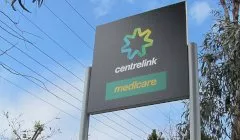Save
How are Australians planning on spending their tax savings?
Essential bills, savings accounts, Christmas gifts and exchange-traded funds appear to be the big winners from the latest round of tax cuts, new research has revealed.
How are Australians planning on spending their tax savings?
Essential bills, savings accounts, Christmas gifts and exchange-traded funds appear to be the big winners from the latest round of tax cuts, new research has revealed.

During the 2020 budget, Treasurer Josh Frydenberg announced that up to 11 million Australians will benefit from tax cuts, with more than 7 million individuals expected to receive $2,000 or more in tax relief for the 2020-21 income year, compared with previous years.
Survey results collated by Colonial First State found the majority of Aussies are intending to spend their extra cash towards essentials like bills, groceries and insurance. This was followed by shopping on discretionary items such as clothing, electronics and accessories, and a holiday.
With festive season round the corner, almost 10 per cent have also planned to use it for Christmas shopping such as décor, gifts and food.
The research also found that almost one in five Australians plans to use their tax cut to reduce their mortgage, particularly those aged between 35-54 years.

While 16 per cent will use the extra money as an opportunity to invest in the stock market, with Australian shares and exchange-traded funds being the big winners.
Surprisingly, only 11 per cent of Australians said they planned to use their tax saving to pay off high-interest debt such as credit card and ‘buy now, pay later’ accounts.
Super ‘not so super’ as preferred spending priority
Despite using their superannuation during the COVID-19 pandemic, very few Australians intend to use the income tax cuts that were introduced in this year’s federal budget towards rebuilding their super or retirement savings.
Colonial First State general manager Kelly Power said the research showed that those who have needed to access super early as a way of surviving income loss, particularly younger Australians, are not making rebuilding their superannuation a priority.
“As we begin to emerge on the other side of the pandemic, it’s important to start thinking about the long-term impact your super withdrawal could have on the quality of your retirement. Seemingly small decisions now could have a big effect on the kind of retirement you’ve always dreamed of.
“Everyone’s circumstances are different, so whether you decide to spend it, use it to pay down debts, build up savings or make super contributions, it’s important Australians put the money towards what matters to them,” Ms Power concluded.
About the author

About the author


Tax saving
$20,000 instant asset write-off extension welcomed, but calls for broader support grow
The Australian government's decision to extend the $20,000 instant asset write-off into the next financial year has been met with approval from business leaders. However, there are growing calls for ...Read more

Tax saving
The downsizer dividend: How targeted tax levers could unlock housing supply in Australia
A call by Raine & Horne to incentivise seniors to move to smaller homes has kicked off a wider policy conversation that reaches well beyond real estate. If designed well, a targeted package could ...Read more

Tax saving
Raine & Horne's bold move could unlock housing supply but what are the hidden risks
Raine & Horne’s call for targeted tax incentives to encourage empty nesters to ‘rightsize’ isn’t just another sector wish list; it’s a potential lever to free up family homes, ease rental ...Read more

Tax saving
From annual check-ups to always‑on: how modern portfolio reviews unlock after‑tax alpha
The era of once‑a‑year portfolio check‑ins is over. Continuous, tech‑enabled reviews now drive returns through tax efficiency, risk control and behavioural discipline—especially in a high‑rate ...Read more

Tax saving
Navigating tax laws for capital gains in 2023
The landscape of Australian tax laws surrounding capital gains is ever-changing, with 2023 being no exception. Read more

Tax saving
What you need to know about the tax implications of crypto
One million Aussies are now invested in crypto, but many have not thought about how these investments will affect them at tax time. Read more

Tax saving
Welfare overhaul could give recipients a leg-up
Australia’s Centrelink recipients who’ve been doing it tough are in for a potentially easier time if the federal government pursues ambitious reforms that could provide sturdier safety nets. Read more

Tax saving
Students should think twice before tapping into their super
Former students might want to think carefully before they look to take advantage of the federal government’s biggest first home buyer incentive. Read more

Tax saving
$20,000 instant asset write-off extension welcomed, but calls for broader support grow
The Australian government's decision to extend the $20,000 instant asset write-off into the next financial year has been met with approval from business leaders. However, there are growing calls for ...Read more

Tax saving
The downsizer dividend: How targeted tax levers could unlock housing supply in Australia
A call by Raine & Horne to incentivise seniors to move to smaller homes has kicked off a wider policy conversation that reaches well beyond real estate. If designed well, a targeted package could ...Read more

Tax saving
Raine & Horne's bold move could unlock housing supply but what are the hidden risks
Raine & Horne’s call for targeted tax incentives to encourage empty nesters to ‘rightsize’ isn’t just another sector wish list; it’s a potential lever to free up family homes, ease rental ...Read more

Tax saving
From annual check-ups to always‑on: how modern portfolio reviews unlock after‑tax alpha
The era of once‑a‑year portfolio check‑ins is over. Continuous, tech‑enabled reviews now drive returns through tax efficiency, risk control and behavioural discipline—especially in a high‑rate ...Read more

Tax saving
Navigating tax laws for capital gains in 2023
The landscape of Australian tax laws surrounding capital gains is ever-changing, with 2023 being no exception. Read more

Tax saving
What you need to know about the tax implications of crypto
One million Aussies are now invested in crypto, but many have not thought about how these investments will affect them at tax time. Read more

Tax saving
Welfare overhaul could give recipients a leg-up
Australia’s Centrelink recipients who’ve been doing it tough are in for a potentially easier time if the federal government pursues ambitious reforms that could provide sturdier safety nets. Read more

Tax saving
Students should think twice before tapping into their super
Former students might want to think carefully before they look to take advantage of the federal government’s biggest first home buyer incentive. Read more













